Filter by

Bluestocking Feminism and British-German Cultural Transfer, 1750-1837
Bluestocking Feminism and British-German Cultural Transfer, 1750–1837 examines the processes of cultural transfer between Britain and Germany during the Personal Union, the period from 1714 to 1837 when the kings of England were simultaneously Electors of Hanover. While scholars have generally focused on the political and diplomatic implications of the Personal Union, Alessa Johns offers…
- Edition
- -
- ISBN/ISSN
- 9780472119387
- Collation
- -
- Series Title
- -
- Call Number
- 306 JOH b
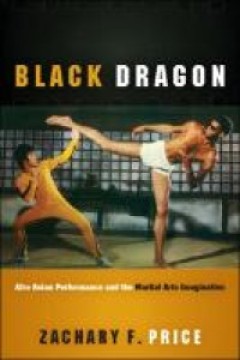
Black Dragon : Afro Asian Performance and the Martial Arts Imagination
In Black Dragon, Zachary F. Price illuminates martial arts as a site of knowledge exchange between Black, Asian, and Asian American people and cultures to offer new insights into the relationships among these groups. Drawing on case studies that include Kareem Abdul-Jabbar’s appearance in Bruce Lee’s film Game of Death, Ron Van Clief and the Black Panther Party for Self-Defense, the Wu-Tang…
- Edition
- -
- ISBN/ISSN
- 9780814214602
- Collation
- 240 halaman
- Series Title
- Black Performance and Cultural Criticism
- Call Number
- 700 PRI b
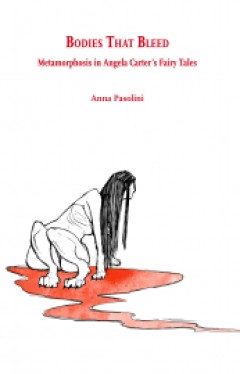
Bodies that bleed : Metamorphosis in Angela Carter’s Fairy Tales
This work aims to develop new readings of the poetics and the politics of Angela Carter’s The Bloody Chamber and Other Stories (1979) in the light of the bodily metamorphoses represented in the fairy tales. Metamorphic processes can be said to inform the stories of the collection both in a thematic and a stylistic perspective and address the need to rethink human experience altogether, especi…
- Edition
- -
- ISBN/ISSN
- 9788867055425
- Collation
- 137 halaman
- Series Title
- -
- Call Number
- 800 BOD
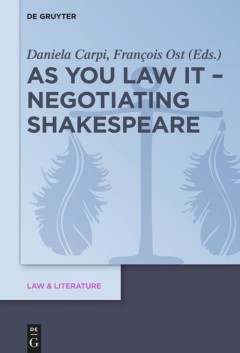
As You Law It : Negotiating Shakespeare
Shakespeare was fascinated by law, which permeated Elizabethan everyday life. The general impression one derives from the analysis of many plays by Shakespeare is that of a legal situation in transformation and of a dynamically changing relation between law and society, law and the jurisdiction of Renaissance times. Shakespeare provides the kind of literary supplement that can better illustrate…
- Edition
- -
- ISBN/ISSN
- 9783110590821
- Collation
- 276 halaman
- Series Title
- Law & Literature Volume 15
- Call Number
- 800 ASY

Authorizing Early Modern European Women : From Biography to Biofiction
The essays in this volume analyze strategies adopted by contemporary novelists, playwrights, screenwriters, and biographers interested in bringing the stories of early modern women to modern audiences. It also pays attention to the historical women creators themselves, who, be they saints or midwives, visual artists or poets and playwrights, stand out for their roles as active practitioners of …
- Edition
- -
- ISBN/ISSN
- 9789463727143
- Collation
- 288 halaman
- Series Title
- Gendering the Late Medieval and Early Modern World
- Call Number
- 800 AUT
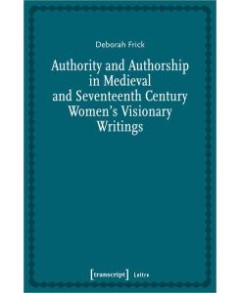
Authority and Authorship in Medieval and Seventeenth Century Women's Visionar…
In medieval and early modern times, female visionary writers used the mode of prophecy to voice their concerns and ideas, against the backdrop of cultural restrictions and negative stereotypes. In this book, Deborah Frick analyses medieval visionary writings by Julian of Norwich and Margery Kempe in comparison to seventeenth-century visionary writings by authors such as Anna Trapnel, Mary Carey…
- Edition
- -
- ISBN/ISSN
- 9783839456897
- Collation
- 156 halaman
- Series Title
- Lettre
- Call Number
- 800 FRI a
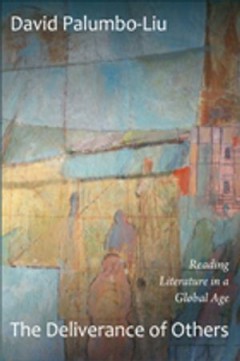
The Deliverance of Others : Reading Literature in a Global Age
The Deliverance of Others is a compelling reappraisal of the idea that narrative literature can expand readers' empathy. What happens if, amid the voluminous influx of otherness facilitated by globalization, we continue the tradition of valorizing literature for bringing the lives of others to us, admitting them into our world and valuing the difference that they introduce into our lives? In th…
- Edition
- -
- ISBN/ISSN
- 9780822352501
- Collation
- 240 halaman
- Series Title
- -
- Call Number
- 800 PAL d
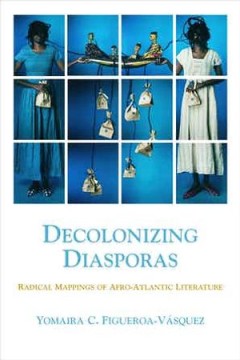
Decolonizing Diasporas : Radical Mappings of Afro-Atlantic Literature
Decolonizing Diasporas proposes a new way to read the literary and cultural productions of the Afro-Atlantic. Mapping literature from Spanish-speaking Sub-Saharan African and Afro-Latinx Caribbean diasporas, Figueroa-Vásquez argues that the works of diasporic writers and artists offer ways of imagining new worldviews which dismantle the logics of colonial modernity. Utilizing women of color fe…
- Edition
- -
- ISBN/ISSN
- 9780810142435
- Collation
- 304 halaman
- Series Title
- -
- Call Number
- 800 FIG d
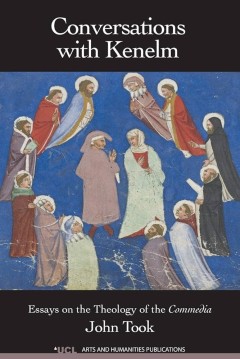
Conversations with Kenelm : Essays on the Theology of the Commedia
In a celebratory moment of the Paradiso, Dante has Thomas go round the circle of sage spirits identifying each in turn in point of proper calling and confirming how it is that self is everywhere present to the other-than-self as a co-efficient of being in the endless and endlessly varied instantiation of that being. The image, at once perfectly Dantean and perfectly resplendent, underlies and i…
- Edition
- -
- ISBN/ISSN
- 9781909188006
- Collation
- 214 halaman
- Series Title
- -
- Call Number
- 800 TOO c
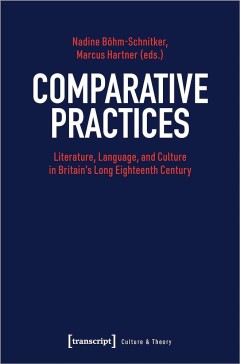
Comparative Practices : Literature, Language, and Culture in Britain's Long E…
Comparisons not only prove fundamental in the epistemological foundation of modernity (Foucault, Luhmann), but they fulfil a central function in social life and the production of art. Taking a cue from the Practice Turn in sociology, the contributors are investigating the role of comparative practices in the formation of eighteenth-century literature and culture. The book conceives of social pr…
- Edition
- -
- ISBN/ISSN
- 9783839457993
- Collation
- 226 halaman
- Series Title
- -
- Call Number
- 800 BOH c
 Computer Science, Information & General Works
Computer Science, Information & General Works  Philosophy & Psychology
Philosophy & Psychology  Religion
Religion  Social Sciences
Social Sciences  Language
Language  Pure Science
Pure Science  Applied Sciences
Applied Sciences  Art & Recreation
Art & Recreation  Literature
Literature  History & Geography
History & Geography